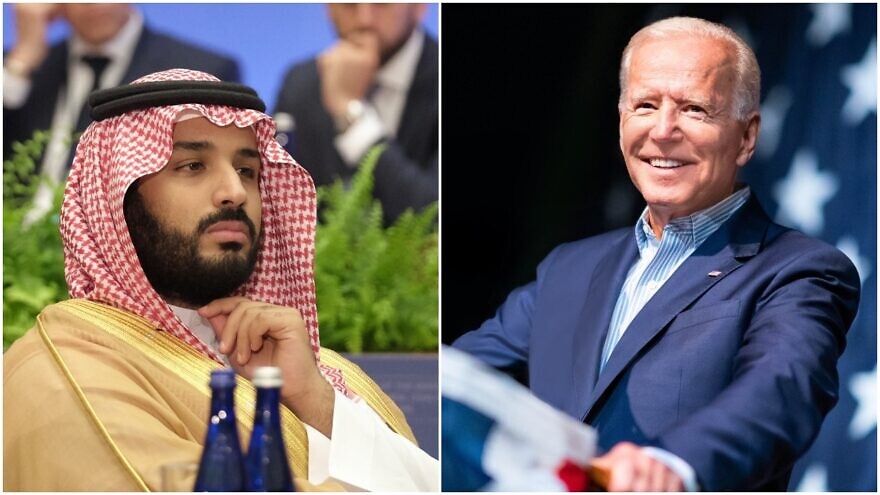The Biden administration has distanced itself from Saudi Arabia, imposing sanctions on some Saudi officials over the 2018 murder of journalist Jamal Khashoggi, but stopped short of penalizing Saudi Crown Prince Mohammed bin Salman (MBS) himself. For Israel, the question is how this U.S.-Saudi rift affects its warming public alliance with the Saudis.
Will White House efforts to punish Saudi Arabia over human-rights violations help push the Gulf kingdom towards Israel, especially with regard to confronting Iran over its nuclear program? And is the Biden administration making an early mistake believing that it can force Western values on non-democratic Arab governments, as it tried and failed in Iraq in 2003, and after the so-called 2011 “Arab Spring”?
“This could increase the incentives the Saudis have for normalizing diplomatic ties with Israel in the future,” he said. “At a minimum, strained bilateral ties with Washington would increase the perceived value in Saudi eyes of expanding ties with Jerusalem.”
Jonathan Spyer, director of the Middle East Center for Reporting and Analysis, told JNS that it’s clear that the Biden administration “is seeking to distance itself from Saudi Arabia as an element of its effort to recommence negotiations with Iran, and perhaps as part of a broader return to the Obama-era concept, according to which the U.S. needs to distance itself from Saudi Arabia and Israel in order to ‘balance’ between them and Iran.”
Like Obama, Biden seems to dismiss Iran’s hegemonic aspirations and has sought to appease Iran, in part by removing the Iran-sponsored Houthis in Yemen from the U.S. terrorist list.
Spyer said the fruits of this approach “may already be seen in the increasingly bold Iranian attacks on American personnel and facilities in Iraq, which have now taken the life of an American citizen, the killing of a prominent anti-Iranian dissident in Beirut, the offensive on Marib in Yemen, the launching of rockets on Saudi Arabia and the apparent attempt to sabotage an Israeli cargo vessel.”
Spyer also noted that Iran “has a clear regional strategy which will not be diverted by U.S. efforts.”
That strategy aims to destabilize the Middle East and cement Iran as the region’s strongest actor.
But Spyer explained that Israel “stands potentially to gain from this situation in that Israel is the strongest and most determined of Iran’s regional adversaries.”
“The U.S. stance may well increase the scope and depth of cooperation between Israel, Saudi Arabia, UAE and Bahrain—all of whom are concerned at Iranian ambitions and actions, and at the emergent U.S. stance towards them,” he said.
It remains to be seen what Biden will do about Iran’s nuclear program, ballistic- and cruise-missile development, support for terrorism, weapons proliferation, human-rights violations and cyber attacks.
‘Some kind of lip service to the left-wing flank’
As Biden focuses on Saudi Arabia’s human-rights record, Israeli officials do not appear hopeful.
Efraim Inbar, president of the Jerusalem Institute for Strategy and Security, said Israel does not feel comfortable with the current stance by America and neither do the Arab states in the Middle East.
Inbar added that it remains unclear why Biden seems to have adopted a “human-rights crusade.”
“Maybe it is some kind of lip service to the left-wing flank in his own party,” he told JNS. “Maybe he wants the Arab states to feel a bit uncomfortable and then do business as usual.”
Inbar emphasized that Biden’s push for human rights would likely backfire, especially if coupled with U.S. inaction regarding Iran and a return to the failed 2015 nuclear deal.
Concerned that Washington will not do anything about Tehran, Israel fears it may lead to, as Inbar described it, a “bandwagon effect where everyone moves closer to Iran.”
Expressing concern in a recent article that “Washington seems incredibly naive,” said Inbar, “we shouldn’t take anything for granted. Not with the Saudis or with the Americans.”
“There is a lot of uncertainty,” he said.


























